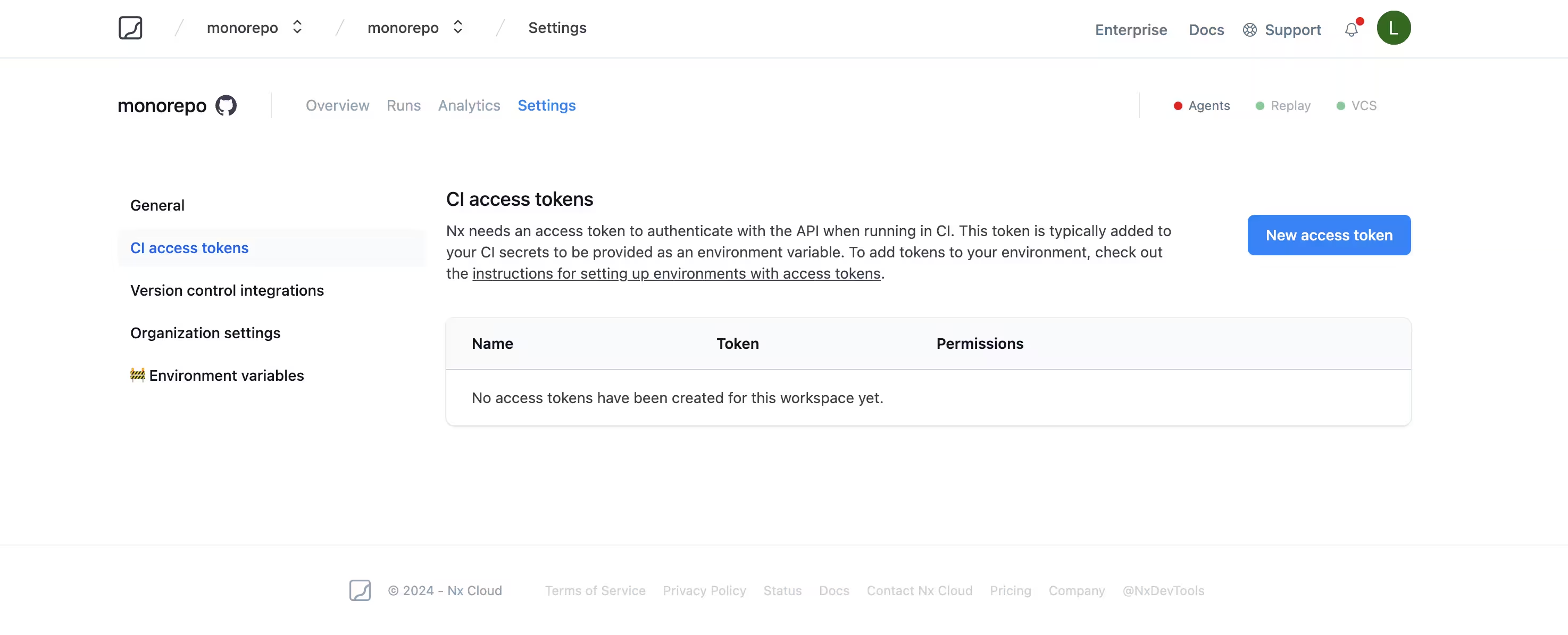Nx CLI and CI Access Tokens
The permissions and membership define what developers can access on nx.app but they don't affect what happens when you run Nx commands in CI. To manage that, you need to provision CI access tokens in your workspace settings, under the CI access tokens tab.

Access Types
Read-write tokens allow full write access to your remote cache. They should only be used in trusted environments.
There are currently two (2) types of CI Access Token for Nx Cloud's runner that you can use with your workspace. Both support distributed task execution and allow Nx Cloud to store metadata about runs.
read-onlyread-write
Read Only Access
The read-only access tokens will only read from the remote cache. New task results will not be stored in the remote cache, but cached results can be downloaded and replayed for other machines or CI pipelines to use. This option provides the benefit of remote cache hits while restricting machines without proper permissions from adding entries into the remote cache.
Read & Write Access
The read-write access tokens allows task results to be stored in the remote cache for other other machines or CI pipelines to download and replay.
Setting CI Access Tokens
You can configure an access token in CI by setting the NX_CLOUD_ACCESS_TOKEN environment variable. NX_CLOUD_ACCESS_TOKEN takes precedence over any authentication method in your nx.json.
The following example shows how to set the NX_CLOUD_ACCESS_TOKEN environment variable in a GitHub Actions workflow. You will need to add the secrets.NX_CLOUD_ACCESS_TOKEN secret to your repository based on instructions provided by your CI provider.
1name: CI
2# ...
3env:
4 NX_CLOUD_ACCESS_TOKEN: ${{ secrets.NX_CLOUD_ACCESS_TOKEN }}
5
6jobs:
7 main:
8 runs-on: ubuntu-latest
9 steps: ...
10Legacy methods of setting CI Access Tokens
Using CI Access Tokens in nx.json
We do not recommend that you commit an access token to your repository but older versions of Nx do support this and if you open your nx.json, you may see something like this:
1{
2 "nxCloudAccessToken": "SOMETOKEN"
3}
4From Nx 19.7 new workspaces are connected to Nx Cloud with a property called nxCloudId instead, and we recommend developers use nx login to provision their own local personal access tokens for user based authentication.
Using nx-cloud.env
You can set an environment variable locally via the nx-cloud.env file. Nx Cloud CLI will look in this file to load custom configuration like NX_CLOUD_ACCESS_TOKEN. These environment variables will take precedence over the configuration in nx.json.